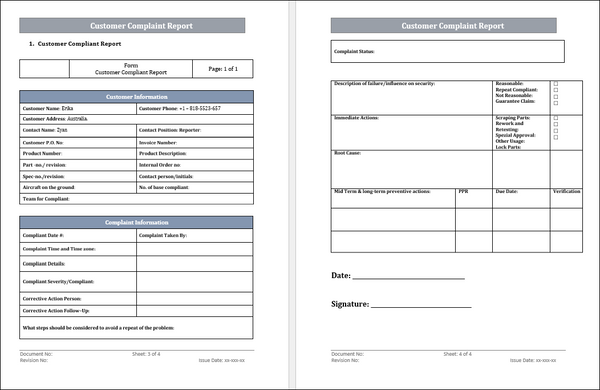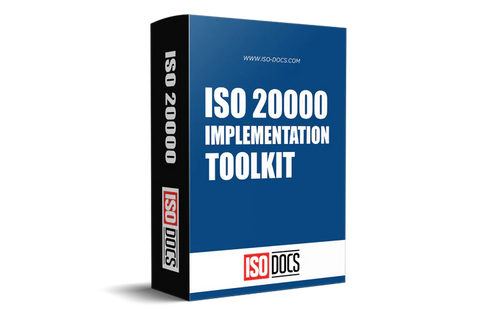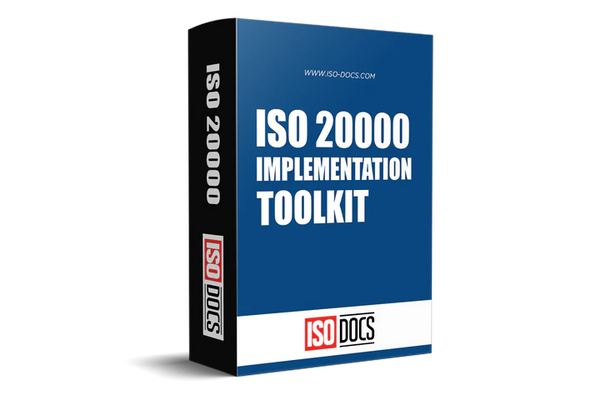Customer Complaint Report
What are Customer Complaints reports?
Customer complaints are one of the most important inputs into an organization's continual improvement process. Therefore, ISO 20000 requires organizations to establish and maintain a procedure for receiving, recording, investigating, and taking corrective and preventive action on customer complaints.

The ISO 20000 standard requires businesses to report customer complaints. This report should include the number of complaints received, how they were dealt with, and any actions taken.
This reporting requirement helps businesses to track trends and identify areas where improvements can be made. It also records how complaints have been dealt with, which can be helpful if a complaint is escalated.
The purpose of the customer complaints procedure is to ensure that:
• Customer complaints are dealt with promptly, effectively, and in a courteous manner
• All customer complaints are recorded, investigated and, where necessary, corrective and preventive action is taken to prevent re-occurrence
• Customer complaints are used to continually improve the organization's processes, products, and services.
• Organisations are required to analyze customer complaints and take appropriate action to prevent re-occurrence. In addition, analysis of customer complaints can be used to identify process improvements and trends.
The customer complaints procedure should be available to all interested parties, including customers.
Why Collecting Customer Feedback?
Organisations can only improve their products and services by understanding what customers think of them. Therefore, collecting customer feedback is essential for businesses to gauge customer satisfaction levels, identify areas for improvement, and make necessary changes.
Several ways to collect customer feedback include surveys, interviews, focus groups, and online reviews. While each method has its advantages and disadvantages, the most important thing is that businesses try to collect customer feedback regularly and actively.
Here are four key reasons why collecting customer feedback is so important:
1. It Helps You Understand Your Customers Better
The primary reason for collecting customer feedback is to understand your target market better. What do they like or dislike about your product? What are their unmet needs? What are their pain points?
By understanding your customers better, you can make the necessary changes to your product or service to better meet their needs. This, in turn, can lead to increased customer satisfaction and loyalty.
2. It Helps You Address Customer Pain Points
In addition to understanding your customers better, collecting customer feedback can help you address specific pain points. For example, perhaps there’s a particular feature of your product that isn’t working well or a specific aspect of your customer service that could be improved.
Collecting customer feedback allows you to identify these specific issues and then take steps to address them. This can, again, lead to increased customer satisfaction and loyalty.
3. It Helps You Develop New Products or Features
Another critical reason for collecting customer feedback is to generate ideas for new products or features. What do your customers want that you don’t currently offer? What would make your product or service even better?
By gathering feedback from your customers, you can get a sense of what new products or features they might be interested in. This can help you to develop these new products or features and even create an entirely new product line.
4. It Helps You Promote Your Product or Service
Finally, collecting customer feedback can help you promote your product or service. Perhaps there’s a particular feature of your product that your customers love or an aspect of your customer service that they appreciate.
Collecting and using this feedback in your marketing can highlight these positive aspects of your business and help attract even more customers.
What Should I Do If a Customer Complaints?
There are a few key things that you should do if you receive a customer complaint:
1. Acknowledge the complaint
The first thing that you should do is acknowledge the complaint. This shows the customer that you are taking their complaint seriously and are committed to resolving the issue.
2. Investigate the complaint
Once you have acknowledged the complaint, you should then investigate the complaint. This will involve looking into the details of the complaint and trying to identify the root cause of the problem.
3. Resolve the complaint
Once you have investigated the complaint, you should then work on resolving the issue. This may involve taking corrective action to fix the problem or simply providing the customer with a refund or compensation.
4. Prevent future complaints
Once you have resolved the initial complaint, you should work on preventing similar complaints from happening. This may involve making changes to your procedures or processes or providing additional training to your staff.
Importance of Customer Complaints
Organizations certified to ISO 20000 must have a complaints management process in place. This process is essential to ensure those customer complaints are appropriately handled and corrective actions are taken to prevent future complaints.
The complaints management process includes the following steps:
- Receiving and logging customer complaints
- Investigating complaints
- Taking corrective and preventive actions
- Closure of complaints
Complaints can be received verbally or in writing and must be logged in the complaints register. The register should include the complaint’s date, the customer’s name, and a brief description.
After a complaint is received, it must be investigated. The investigation should aim to identify the root cause of the complaint, and it should be conducted by someone who was not involved in the original incident. Once the root cause is identified, corrective and preventive actions must be taken to prevent future complaints. Finally, the complaint should be closed out, and the customer should be informed of the steps taken.
The complaints management process is essential for several reasons. First, it can help identify areas where improvements are needed. Second, it can help build customer trust and loyalty. Finally, it can help improve the overall quality of products and services.
Benefits of customer complaints report
- Helps in analyzing customer pain points: A customer complaint report helps businesses identify the areas where customers face pain points. This, in turn, allows companies to work on improving their products or services to reduce customer complaints.
- Helps in analyzing customer feedback: A customer complaint report provides businesses with valuable customer feedback. This feedback can help companies to improve their products or services.
- Helps in monitoring complaints: A customer complaint report also helps businesses monitor the number of complaints they receive. This allows companies to take corrective action if the number of complaints increases.
- Helps improve customer satisfaction: Businesses can improve customer satisfaction by taking corrective action based on customer complaints. This, in turn, can lead to more customers and more business.



